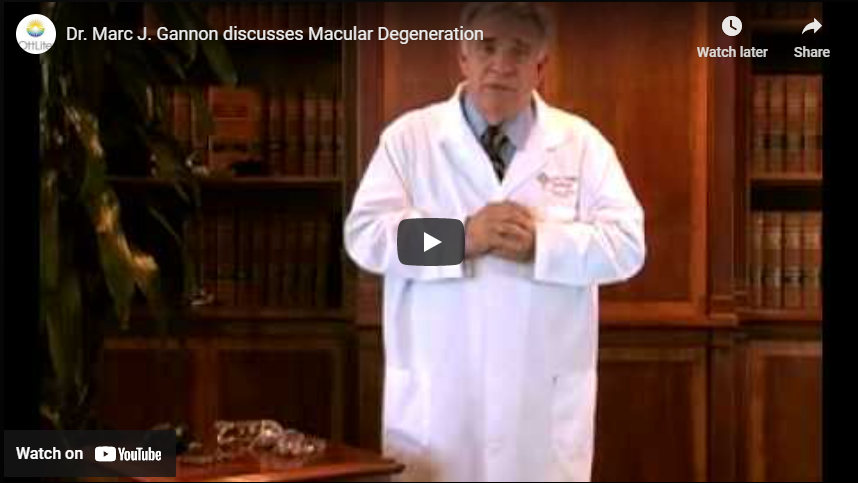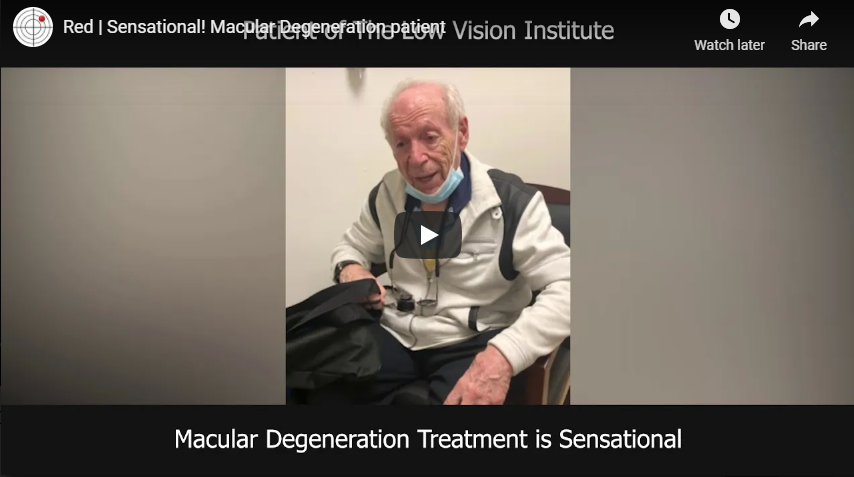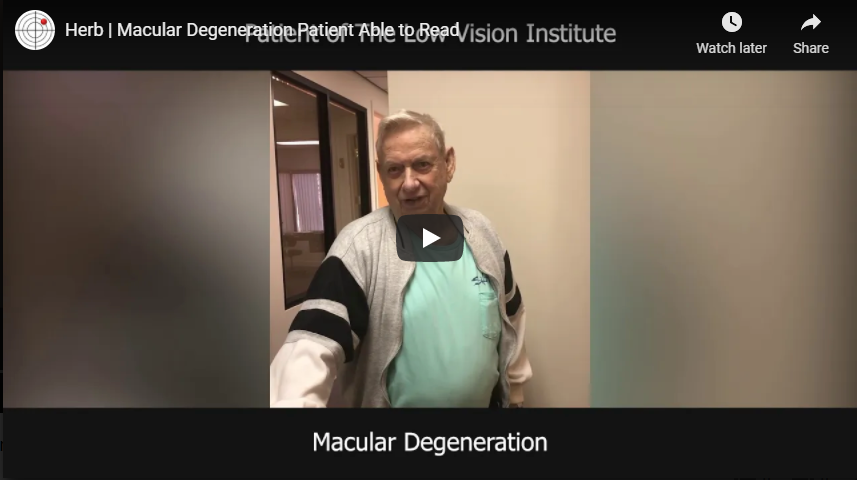Macular Degeneration
Low Vision Care for Macular Degeneration in Florida
At Low Vision Institute, we take a different approach to Macular Degeneration. When you come to us you will begin to discover the things you can do rather than what you can’t because of your vision loss. Low Vision Institute has helped countless patients with Macular Degeneration maximize their remaining vision and live joyful lives while doing things they value
How We Help With Macular Degeneration
There are over 10 million people with Macular Degeneration in North America but that’s of little comfort when you’re one of them. Sooner or later, ophthalmologists and retinal specialists cannot offer any more treatments to improve your vision. At that point, you will ask yourself how life will go on. Will you be able to continue driving, reading, cooking, playing cards, or simply getting around without the assistance of others?
You have come to the right place for answers.
Dr. Marc Gannon, a low vision optometrist and member of the International Academy of Low Vision Specialists (IALVS) will help you optimize your remaining vision for the tasks and activities that matter to you most.
During a low vision exam, we will determine together what these activities are. We will then introduce you to the different devices and glasses that can optimize your vision for these specific tasks. Dr. Roderick Fields will work with you to evaluate which options are best suited to your needs, and help you understand what is possible and what isn’t. Learn more about how we’re different.
What is Macular Degeneration?
Macular degeneration is a disorder that causes a loss of the cells in the macula and areas of the retina immediately surrounding it. This may result in a central blurring of vision initially, to a total loss of central vision in its stages of final progression. This condition may present in two main ways, wet and dry.
What Is Dry Macular Degeneration?
The dry form is the more common, seen in about 90% of all patients with macular degeneration. This form is usually much slower in its progression, but in its final stages may threaten most of the central vision and those macular functions associated with it.
What Is Wet Macular Degeneration?
In the wet form, a great deal of central function may be lost in a very short period of time. It is critical in the wet form to seek immediate evaluation and treatment by an Ophthalmologist highly skilled and trained in the retina of the eye.
What are the symptoms of Macular Degeneration?
Blurry central vision to a total loss of central vision
- Reduction to a total loss of color perception = colors may not look as “they should” to “everything looks black and white”.
- Distortion of vision. Things may appear to be wavy or irregular.
- Decreased contrast sensitivity. It is easier to see things that are black and white with greater contrast differences in them than to see things like noses and cheeks that have almost the same levels of contrast.
- Recovery from changes in light levels. It may take much longer to see inside after being out in a very bright light and then returning to an environment that is more dimly illuminated.
- Severe sensitivity to light (Photophobia). Even lights that aren’t very bright to a normal eye may result in high levels of discomfort to a patient with macular degeneration. Sometimes patients with macular degeneration will see well at night or in dimly lit areas because they are then able to use the rod system of cells which is generally in the periphery of the retina.
- Reduced depth perception. Inability to judge how far away different objects may be.
The Low Vision Institute offers comprehensive macular degeneration treatment options to all patients affected by the disease in Ft. Lauderdale.

Helping Macular Degeneration Patients with Visual Activity
Dr. Gannon can help patients with macular degeneration regain visual function.
Questions & Answers About Macular Degeneration
Can I Drive With Macular Degeneration?
There are low vision glasses that enable low vision patients to drive. Whether these are suitable for you depends on two main factors: the level of your vision and the driving laws in your specific region. Consult Low Vision Institute to provide you with detailed information.
Is Macular Degeneration Genetic?
One does not inherit age-related Macular Degeneration; however, people with a family history of the disease should make sure to get frequent eye examinations. There are some forms of Macular Degeneration that derive from a genetic disorder. Examples are Stargardt’s disease and Best disease. These affect younger patients and are also referred to as juvenile Macular Degeneration.
Can Macular Degeneration Be Prevented?
There are several known risk factors for age-related Macular Degeneration. Taking action to reduce the risks can help prevent, or at least slow the progression. Healthy eating habits that ensure a healthy blood pressure level are recommended. Smoking and extensive sun exposure should be avoided. Often patients in the early stages of Dry Macular Degeneration are advised to take specific vitamin supplements. The low vision optometrist can provide details.
Is Macular Degeneration Treatable?
For the dry type, there is no effective treatment available, and patients are advised to follow specific nutritional protocols, including supplements.
Treatments to slow down Wet Macular Degeneration usually require monthly injections or frequent laser treatments, which have many limitations.
Drug developments and research are advancing, with a number of clinical trials underway. Some notable approaches are anti-VEGF therapy or implants that aim at inhibiting an enzyme stimulating the growth of new blood vessels that cause blood leakage, gene therapy, and cell transplantation.
At the moment, there is no cure for either of the two types of Macular Degeneration. This is why it is important for you to see a low vision optometrist in addition to your medical doctor to help you manage the disease’s effects.
Phone: 1.866.942.2020





